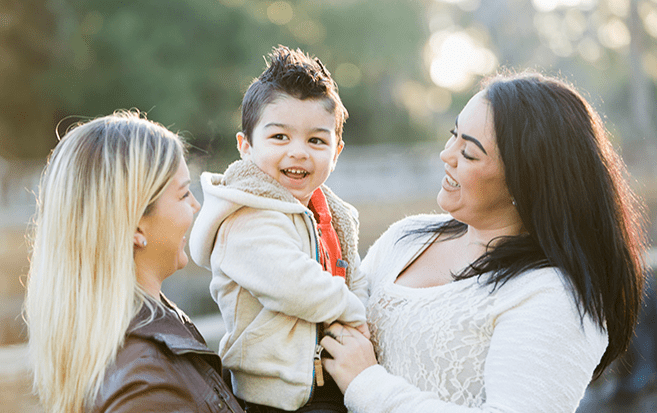There are many reasons why people sign up to become foster carers and even more can be given for why they continue to do it year after year. The biggest motivation is the desire to make a difference in a child’s life. However, this is far from the only benefit. We looked at the benefits of being a foster carer through the eyes of experienced foster parents and came up with the following list.
A Fulfilling Career
Foster care provides a fulfilling career for many adults. As with any career, initially some aspects might seem daunting, especially the review process. But the fostering agency you sign up with will provide you with all the training you need for the children you will be looking after. You will also receive ongoing support and the chance to interact with other foster families.
One of the highlights of your fostering career is being able to witness the difference your care has made to the children you have looked after. Looking back and comparing a child to how they were when they first arrived on your doorstep to how they blossomed under your care is one of the great rewards of fostering.
The process of how to become a foster parent is explained here. If you feel you are suitable for a career in fostering, get in touch with an agency and follow the outlined steps.
Short-term versus Long-term Care
At the start of your fostering career, you will most likely take care of foster children on a short-term basis. This will be for a couple of nights, a few months, or up to two years. Despite the bond that forms between you and the foster child and the growing attachment, you need to be prepared for these arrangements to end when the child either returns to their birth family, is placed with another family for the long-term to age 21 years old or is adopted. Although sometimes the child may stay with you on a long-term arrangement if everyone agrees.
Over time, you can choose to have foster care arrangements that last longer than two years, if that suits you. If the child is to remain with you until adulthood, you can allow that bond to grow stronger without the fear of losing the child. This will enable you to inculcate them as members of your family and have a stronger positive effect on their lives.
Lifetime Bonds
You can form a lifelong bond with a child in your care when they are placed with you for the long term. Many foster carers continue to be a part of their foster children’s lives after they have completed their schooling, gotten married, and had children of their own. You may be present when the young adult graduates from university or walk them down the aisle at their wedding. The children you have cared for so well may place you in the role of grandparent to their children, showing how strong these bonds can be.
While not every foster care story ends this way, many children will come back when they are grown up to thank a foster carer for playing a key role in turning their lives around.
Positive Effects on Your Biological Children
Your biological children will experience the joys of sharing with those less fortunate than themselves. They will develop compassion and may go on to express this in their choice of career, sometimes even choosing to become foster parents as adults too. It is likely that your biological children will form strong friendships with the children in your foster care that will deepen the family integration into a true family.
Making an Income
Although this may be seen as a pedestrian reason for entering the world of foster care, it does take money to provide for a child’s daily needs and give them what they need to flourish as they grow and overcome their pasts. Foster agencies pay foster carers well to enable them to focus on foster children in their care, so you can be financially rewarded for doing something you love.
The fostering allowance differs from one agency to the next. Within an agency, there may be differences between standard placements, respite placements, therapeutic fostering, and parent and child placements. Your location may also affect the allowance you receive, for example, foster carers in London may get paid more as they face a higher cost of living. The amount paid may also vary according to the age of the child, a foster child with disabilities, more than one child being fostered, and sibling foster children. You may also get respite leave annually.
As a foster carer, you will have to file an income tax return as a self-employed person. However, in most cases, your fostering allowance will be completely tax-free because of the annual tax relief of £18,140, plus weekly tax relief amounts up to £450 per week per child which adds to your tax relief.
Having a Second Income
Fostering is sometimes a full-time career, but many foster parents do work alongside fostering. You also need to be available for the child when they are home from school or pre-primary school and to attend any meetings, such as with social workers, their school or with contact with the birth family. You should also have good back-up from your close family and friends in case of emergencies that call you away.
If you are part of a couple, you may decide that one of you will stay at home to take care of the foster children placed in your home, if that feels better for your situation. You may agree that the other partner will continue with their current job to bring in an extra income over and above the fostering allowance. This will allow the family to have a higher income to put towards things like holidays abroad. A foster carer who mainly looks after foster children during emergency situations may decide to continue to work and welcome children into their home as needed. Everyone’s situation is different, but you can work and foster if you choose.
What is important in making this decision is to look at what the foster children need and how best to provide that.
With so many benefits to being a foster carer, it is well-worth looking into.





